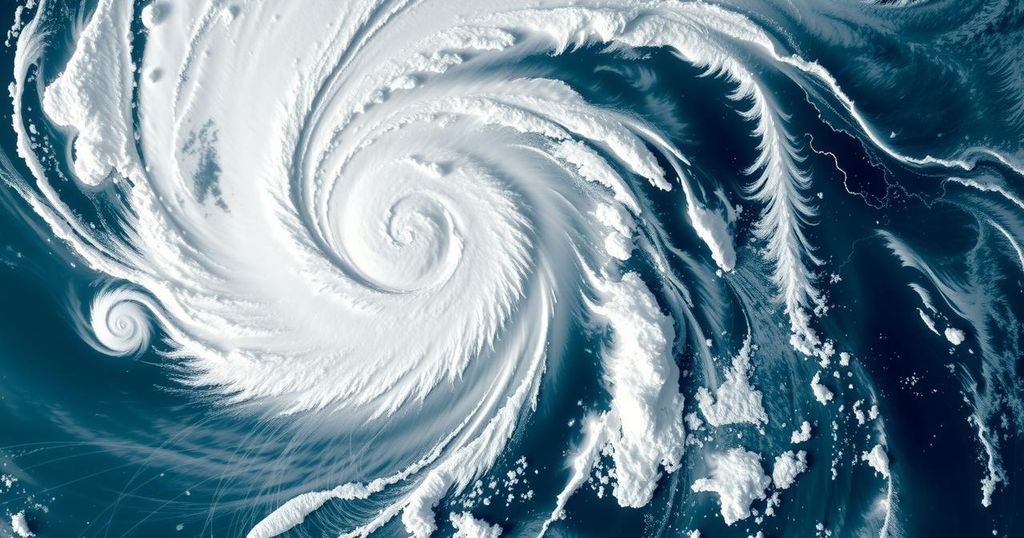Tropical Storm Dikeledi struck northern Mozambique on Monday, causing significant destruction after impacting Madagascar and Mayotte. The storm could produce heavy rainfall and high winds, prompting governmental warnings. President Nyusi urged residents to seek shelter and prepare for the storm, which follows a pattern of increased cyclone activity influenced by climate change.
Tropical Storm Dikeledi made landfall in northern Mozambique on Monday, resulting in significant damage and fatalities. The storm, which had already caused the deaths of at least three individuals in Madagascar and led to flooding in the French territory of Mayotte, intensified as it approached Mozambique’s Nampula region, with reports of destructive winds and heavy rains. The French meteorological agency, Meteo-France, is closely monitoring the situation, having issued flood warnings that indicate potential rainfall of up to 200 millimeters (approximately eight inches) within 24 hours and wind gusts reaching 180 kilometers per hour (110 miles per hour).
Mozambique’s President, Filipe Nyusi, has urged citizens in the storm’s trajectory to protect themselves by securing shelter and ensuring they have adequate supplies of food and water. “Go immediately to a safe shelter and stay there until the authorities give you further instructions,” he stated during a parliamentary session in the capital, Maputo. Previously, the region suffered devastating impacts from Cyclone Chido in December, which resulted in over 120 fatalities and extensive damage.
As Dikeledi progresses, it poses additional threats to Madagascar, particularly its southwestern coast, prompting continued vigilance from local authorities. The storm’s development aligns with the peak cyclone season in the Indian Ocean, which typically spans from November to March. Current surface water temperatures near Madagascar are approximately 30 degrees Celsius (86 degrees Fahrenheit), which can enhance storm intensity, raising concerns about future cyclones across the region due to climate change.
The implications of such weather patterns are significant, underscoring the need for effective disaster preparedness and response strategies in vulnerable coastal areas.
The experiences of Northern Mozambique with hurricanes and cyclones highlight the increasing frequency and magnitude of extreme weather events, often exacerbated by climate change. With the Indian Ocean cyclone season spanning from November to March, regions like Mozambique and Madagascar are particularly susceptible to severe storms that develop due to rising sea surface temperatures. Historical data indicates that cyclones not only lead to tragic loss of life but also to extensive damage to infrastructure and livelihoods. This underscores the need for improved disaster response plans and community preparedness measures.
In summary, Tropical Storm Dikeledi has had a serious impact on northern Mozambique, following its deadly path through Madagascar and Mayotte. The storm exemplifies the heightened risks faced by coastal regions during cyclone season, particularly as climate conditions shift. The urgent call to action from President Nyusi reflects the grave realities posed by such natural disasters, emphasizing the critical importance of preparedness and community resilience in facing the challenges posed by extreme weather events.
Original Source: www.barrons.com






